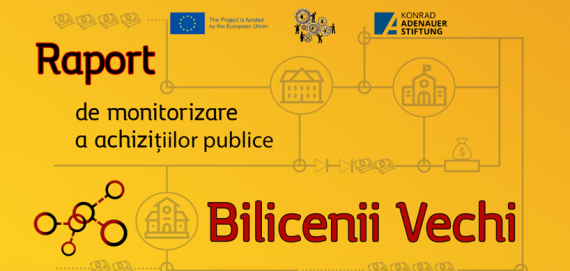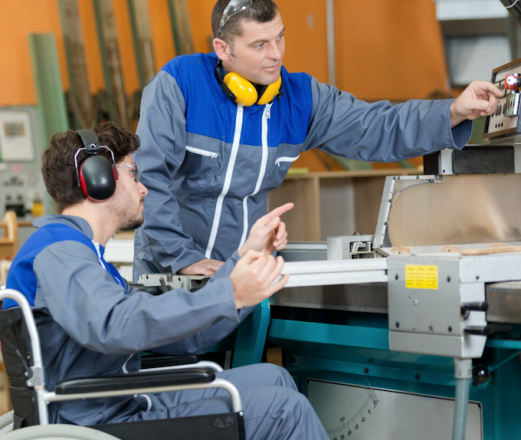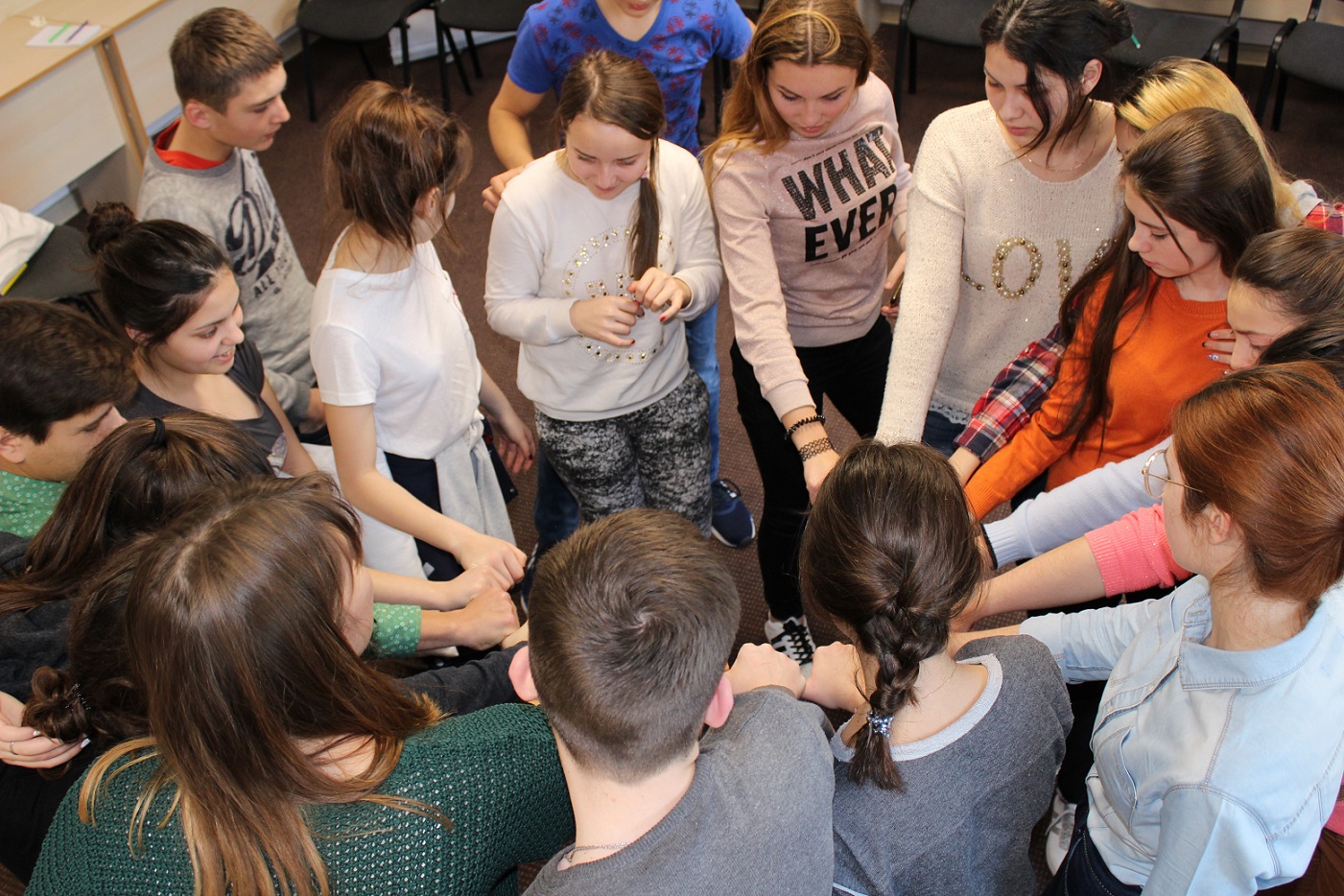by Stas Ghiletchi, Local Correspondent from Moldova
May 15th was the deadline to for the second call launched within the project “Civil Society Development in the Republic of Moldova”. The budget of the second call will be around EUR 1 million and will finance various activities that promote and encourage good governance such as: community mobilization campaigns, public hearings, assessment of the efficiency and effectiveness of local authorities, development of training modules and involvement of civil society in community development and local decision-making processes.
The project was launched in 2019 and it is funded by the European Union (EU) and the Konrad Adenauer Foundation (KAS). The aim of the project is to strengthen civic engagement and to develop civil society organizations at local level in the Republic of Moldova. The focus on grassroots organizations represents a positive change, particularly as local NGOs have been overlooked in the past. Identification and support of individual promising grassroots organizations can improve people’s lives, especially at the community level, by improving their capacities, encouraging effective interaction with communities and facilitating partnerships with more mature NGOs. Around 150 projects will be funded during 2019-2021.
Under the first call, 59 projects have been supported. What was achieved during the first year? What were the results? What was the impact of the implemented activities? This article will highlight some of the best local initiatives implemented in the past months.
Public procurement monitoring
 The project Local Civic Amplifier is implemented by the Public Association of Active Communities for Participatory Democracy. Project activities were performed in three rayons: Telenesti, Singerei and Soldanesti. The overall goal was to design a set of tools which would facilitate the monitoring of public procurement and transparency of the local budgets. Such local initiatives spread hope, especially because the public perception concerning the phenomenon of corruption in public procurement has been rising. Moreover, based on a research from Expert-Grup, an independent analytical center, the cost of corruption in public procurement ranges from MDL 1.6 billion (EUR 81 million) to MDL 3.0 billion (EUR 153 million) which represents 1.3% and 2.5% of GDP. To this day, the project produced 15 public procurement monitoring reports. A good feature of the reports is the simplification of the complex language usually used by Local Public Authorities (LPA) in their procurement. This should stimulate and encourage a more active participation on behalf of citizens. Such local initiatives can enable citizens to engage in collective action against corruption and make LPA more responsible and transparent.
The project Local Civic Amplifier is implemented by the Public Association of Active Communities for Participatory Democracy. Project activities were performed in three rayons: Telenesti, Singerei and Soldanesti. The overall goal was to design a set of tools which would facilitate the monitoring of public procurement and transparency of the local budgets. Such local initiatives spread hope, especially because the public perception concerning the phenomenon of corruption in public procurement has been rising. Moreover, based on a research from Expert-Grup, an independent analytical center, the cost of corruption in public procurement ranges from MDL 1.6 billion (EUR 81 million) to MDL 3.0 billion (EUR 153 million) which represents 1.3% and 2.5% of GDP. To this day, the project produced 15 public procurement monitoring reports. A good feature of the reports is the simplification of the complex language usually used by Local Public Authorities (LPA) in their procurement. This should stimulate and encourage a more active participation on behalf of citizens. Such local initiatives can enable citizens to engage in collective action against corruption and make LPA more responsible and transparent.
Assisted employment services
 The second project that I would like to highlight is the one implemented by the NGO Azi from Cahul. Its goal is to facilitate the integration of people with special needs into the workplace by developing an assisted employment service. Despite the fact that the employment of persons with disabilities is considered to be one of the priorities when it comes to employment policies, the policies failed to achieve meaningful progress. For example, the employment rate of people with disabilities is much lower than that of people without disabilities. People with disabilities are employed in a much smaller proportion: while the employment rate of people without disabilities is 47.2%, among people with disabilities it is only 19.1%. The employment assisted service will help people with disabilities to get a job or to keep a job. Some other features also include: support for the employee, but also for the employer throughout the entire employment; and provision of information and advice regarding successful recruitment. The service will be piloted in Cahul and Cantemir. The objective is to convince 20 companies/state agencies to use the employment assisted service and increase the employment rate of people with disabilities. The project itself is promising and hopefully its local success will provide the necessary energy to obtain change at the national level as well.
The second project that I would like to highlight is the one implemented by the NGO Azi from Cahul. Its goal is to facilitate the integration of people with special needs into the workplace by developing an assisted employment service. Despite the fact that the employment of persons with disabilities is considered to be one of the priorities when it comes to employment policies, the policies failed to achieve meaningful progress. For example, the employment rate of people with disabilities is much lower than that of people without disabilities. People with disabilities are employed in a much smaller proportion: while the employment rate of people without disabilities is 47.2%, among people with disabilities it is only 19.1%. The employment assisted service will help people with disabilities to get a job or to keep a job. Some other features also include: support for the employee, but also for the employer throughout the entire employment; and provision of information and advice regarding successful recruitment. The service will be piloted in Cahul and Cantemir. The objective is to convince 20 companies/state agencies to use the employment assisted service and increase the employment rate of people with disabilities. The project itself is promising and hopefully its local success will provide the necessary energy to obtain change at the national level as well.
These two projects (and others financed within this call) will not be able to transform Moldova overnight. But, the implementation of such projects contains hope, that despite the rather challenging times, Moldova is developing better and stronger NGOs within the entire country which have a specific focus to build democracy, promote pluralistic debate and improve public services for citizens.
This article was produced by Stas Ghiletchi, the Project’s local correspondent and EaP Civil Society Fellow from Moldova in the framework of the EU-funded ‘Eastern Partnership Civil Society Facility – Regional Actions’ Project. Its contents are the sole responsibility of Stas Ghiletchi and do not necessarily reflect the views of the European Union or the Project.
Read more about our local correspondents here.




